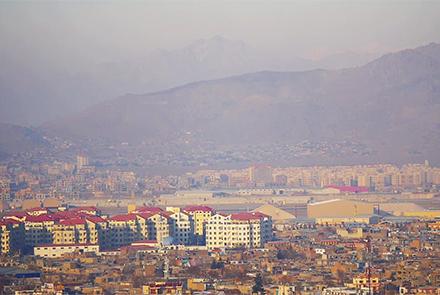Officials from Climate Action Network for South Asia (CANSA) on Sunday said at a meeting in Kabul that Afghanistan is on the list of countries threatened by climate change.
The two-day CANSA meeting in Kabul has been convened for experts to discuss the risks that could Afghanistan could face because of climate change.
The meeting is being attended by officials from CANSA, the National Environment Protection Agency (NEPA) and the Ministry of Information and Culture.
CANSA officials said there are a number of ways climate change poses a threat to Afghanistan. They said there was a lack of awareness about pollution and climate change, and an absence of plansin place by responsible departments to minimize the risks.
“Afghanistan as a poor country is on the list of countries that face high risks because of climate change. Immediate and serious action should be taken in this regard,” said Sayed Ehsan, CANSA country director for Afghanistan.
Officials from the National Environmental Protection Agency (NEPA) meanwhile said serious action needs to be taken by the relevant departments to mitigate and prevent the risks of climate change and to resolve the environmental pollution problem.
“Our country is not easily able to cope with climate change. Our country’s ecosystem is fragile, our resources and agricultural diversity are limited and the population is growing. Thus, Afghanistan is one of the most vulnerable countries,” Mohammad Neman Hikmat, head of office of NEPA director said.
Syeda Muzhgan Mustafavi, Information and Culture Deputy Minister for Tourism meanwhile said religious scholars should inform people about the issue and the importance of reducing environmental pollution.
“Religious scholars can play a crucial role in bringing awareness to the people and they should give information about environmental issues to the people in their Friday prayers. We are also ready to give you an information package,” Mustafavi said.
Climate change is one of the biggest concerns in the world, especially in less developed countries but already the impact of climate change has been felt in Afghanistan – particularly that involving the drought currently gripping much of the country.
On Sunday, Reliefweb reported that below average precipitation since October 2017, has destroyed and degraded agriculture and livelihoods, significantly increasing the number of people in need.
The organization said the current drought is likely to cause a protracted crisis and the negative impact of the drought on harvests will deprive many families of income and sustenance until the next harvest season and potentially beyond.
This comes after CEO Abdullah Abdullah said at an international water management summit in Tajikistan last month that climate change will take a serious toll on Afghanistan by 2050.
Abdullah said Afghanistan’s average temperature will increase considerably over the next 30 years, along with a population increase.
Addressing delegates, he said: “Afghanistan will experience an increase of approximately 1.5 degrees Celsius in mean temperature and a doubling of population by 2050.”
“In contrast, pessimistic scenario shows extreme warming across the country of approximately 3 degrees Celsius within the next 32 years. This highlights the pressing need to build resilience and support communities towards adaptation of course effective management of water.”


